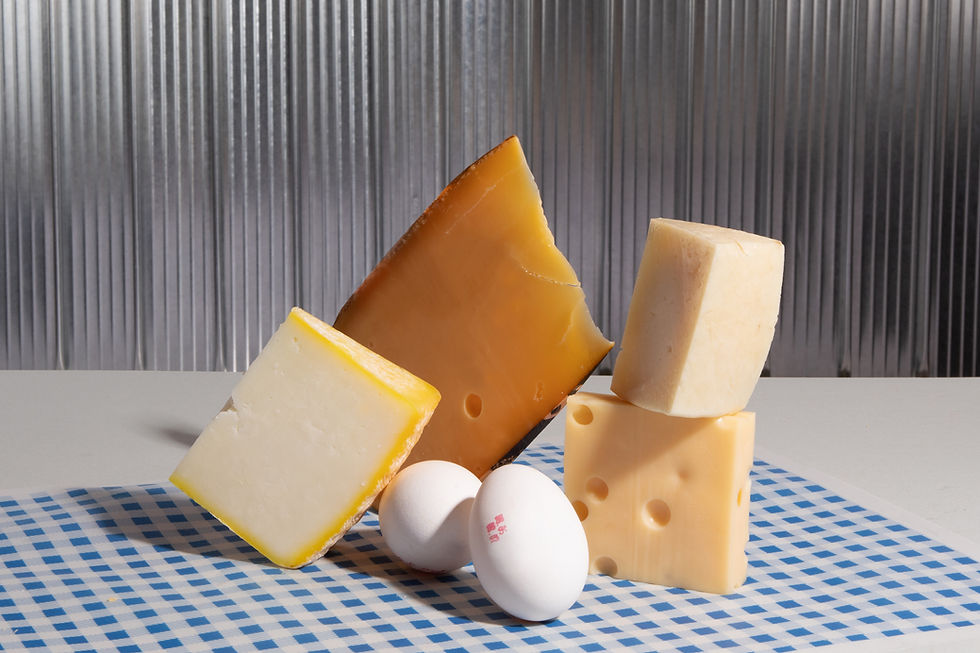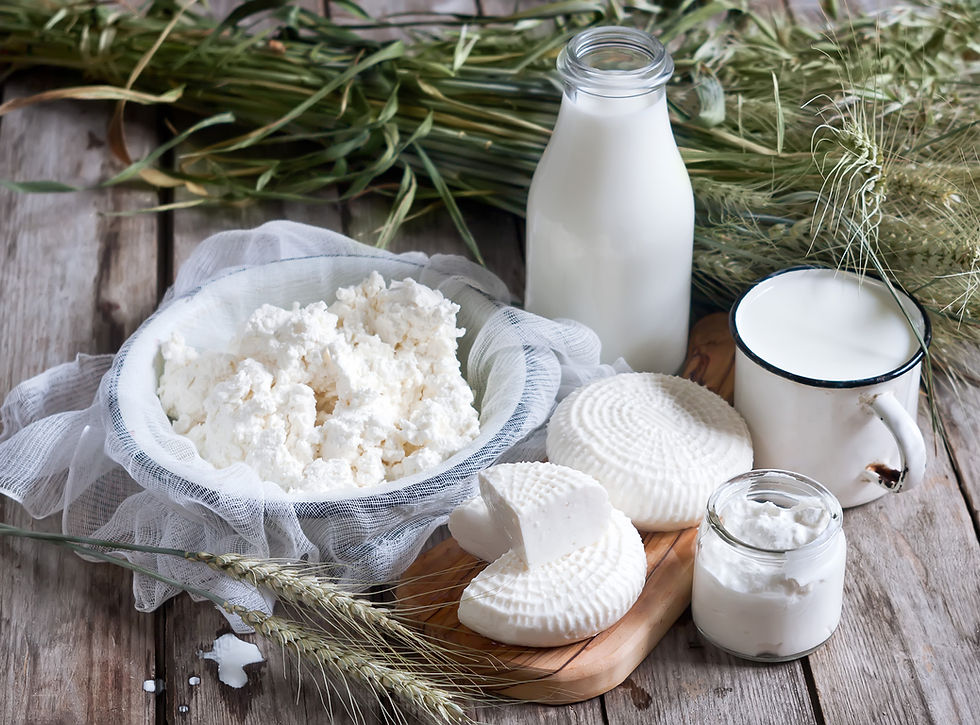The crucial nutrients you need to know about whilst being pregnant
- The Unordinary Dietitian
- Jan 18, 2022
- 3 min read
Updated: May 11, 2023
Folate
Assists in red and white cell production as well as maintains our metabolism. During pregnancy, our needs increase due to the rapid cellular growth and development of our baby and our maternal tissues. Adequate amounts of folate can prevent Neural Tube Defects (NTDs) by up to 70% if you begin taking folate supplements at least one month before conception.
Dietary sources: Leafy greens, legumes, and bananas in addition to a pregnancy multivitamin

Iodine
Aids in the brain and nervous system development of your baby, and has a role in metabolism and hormone production. Iodine requirements increase in the first 14-16 weeks of pregnancy as your baby relies on your thyroid hormone supply.
Dietary sources: Bread, and iodised salt

Vitamin D
Helps manage levels of calcium and phosphate which aids in the muscle and bone development of your baby. Deficiencies of vitamin D could result in gestational diabetes or preeclampsia during pregnancy, and low birth weight or skeletal development impairment in babies.
Dietary sources: Egg yolks, cheese, tuna and salmon.

Iron
Is a main component in red blood cell production and oxygen transportation. Iron is a concern in women in general but even more so during pregnancy. Approximately 20% of pregnant women meet the iron store recommendations (300-500mg) before entering pregnancy. Not meeting requirements during pregnancy may cause iron deficiency anaemia which may result in pre-term labour, low birth weight, intrauterine growth retardation and increased foetal and maternal mortality.
Dietary sources: Red meat, legumes, whole grains, firm tofu and seeds

Omega 3
Omega 3 fatty acids such as EPA and DHA have a major role in eye and brain development and in improving cognitive functioning. Some studies have shown that adequate intake of DHA could reduce the risk of postnatal depression, preeclampsia, preterm birth and intrauterine retardation. It is recommended that you consume 2 servings of oily fish per week or include walnuts and flaxseeds in your diet.
Dietary sources: Walnuts, flaxseeds, salmon and tuna

Vitamin B12
Required for brain and nervous system functioning, cell metabolism and the cell growth of your baby. The first 1000 days after conception are the most important for your baby’s brain development which is why consuming adequate amounts of folate and B12 is vital.
Dietary sources: Fish, eggs and milk

Vitamin B3
Has a role in foetal brain development, relieving nausea and migraines, improving digestion and can potentially reduce the risk of birth defects and miscarriages.
Dietary sources: chicken, oily fish and peanuts

Zinc
Is responsible for metabolism, immune function and making proteins. Some research shows that it may reduce the risk of preterm birth by 14%!
Dietary sources: Legumes, hemp seeds, cashew nuts, eggs, milk and cheese
Choline
Choline works alongside Vitamin B12 and folate through metabolic processes which impact foetal growth and brain development. Furthermore, it maintains placental integrity and function, as well as being the building blocks of your baby’s cells. A study has found that despite some women having adequate levels of folate, insufficient choline could still increase the risk of NTDs.
Dietary sources: Eggs, whole grains, peanuts and lean chicken

Selenium
Selenium is an antioxidant which means it has the effect of reducing DNA damage in the developing embryo. It also contributes to organ development and placental growth to ensure the baby it growing healthily.
Dietary sources: Brazil nuts, organ meats and seafood
For tailored advice and strategies on how to ensure you are getting all the nutrients you and your bub need, book a 1:1 consultation with me now!

Comments